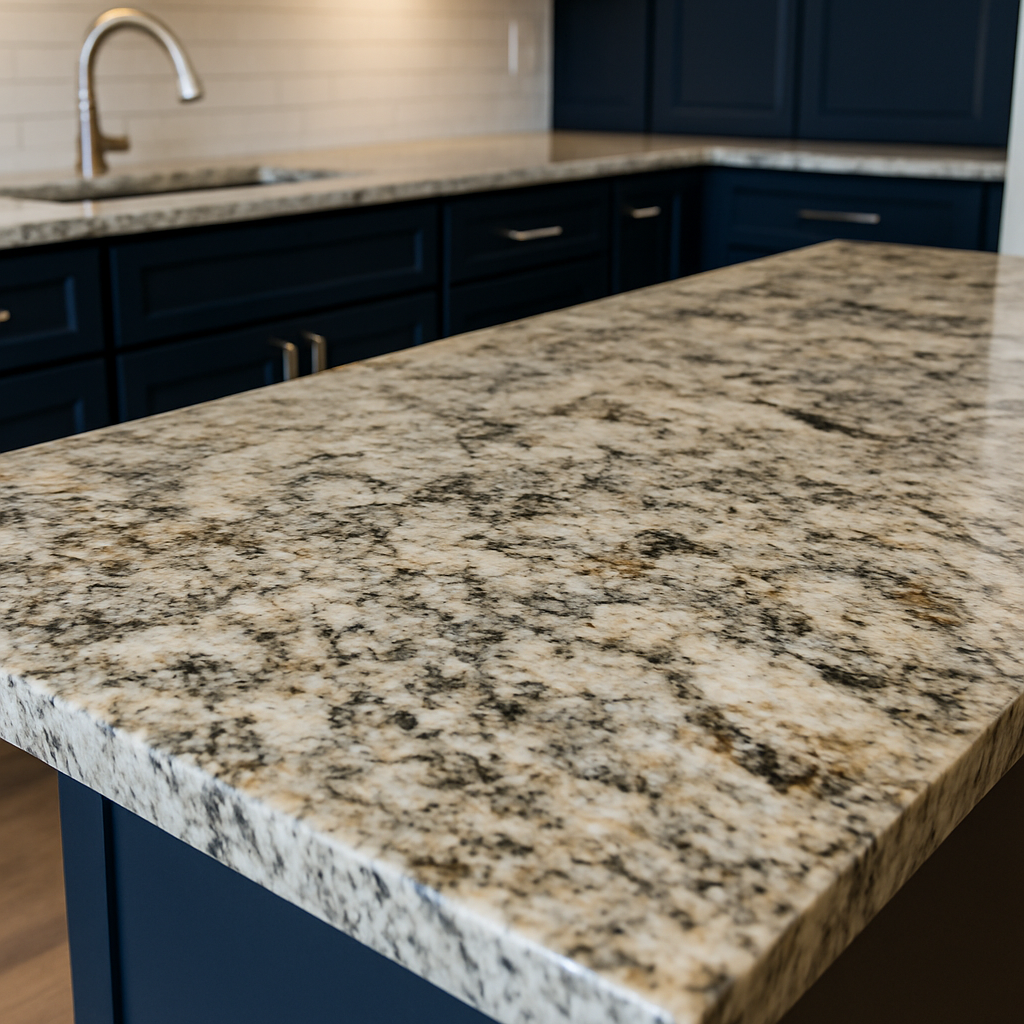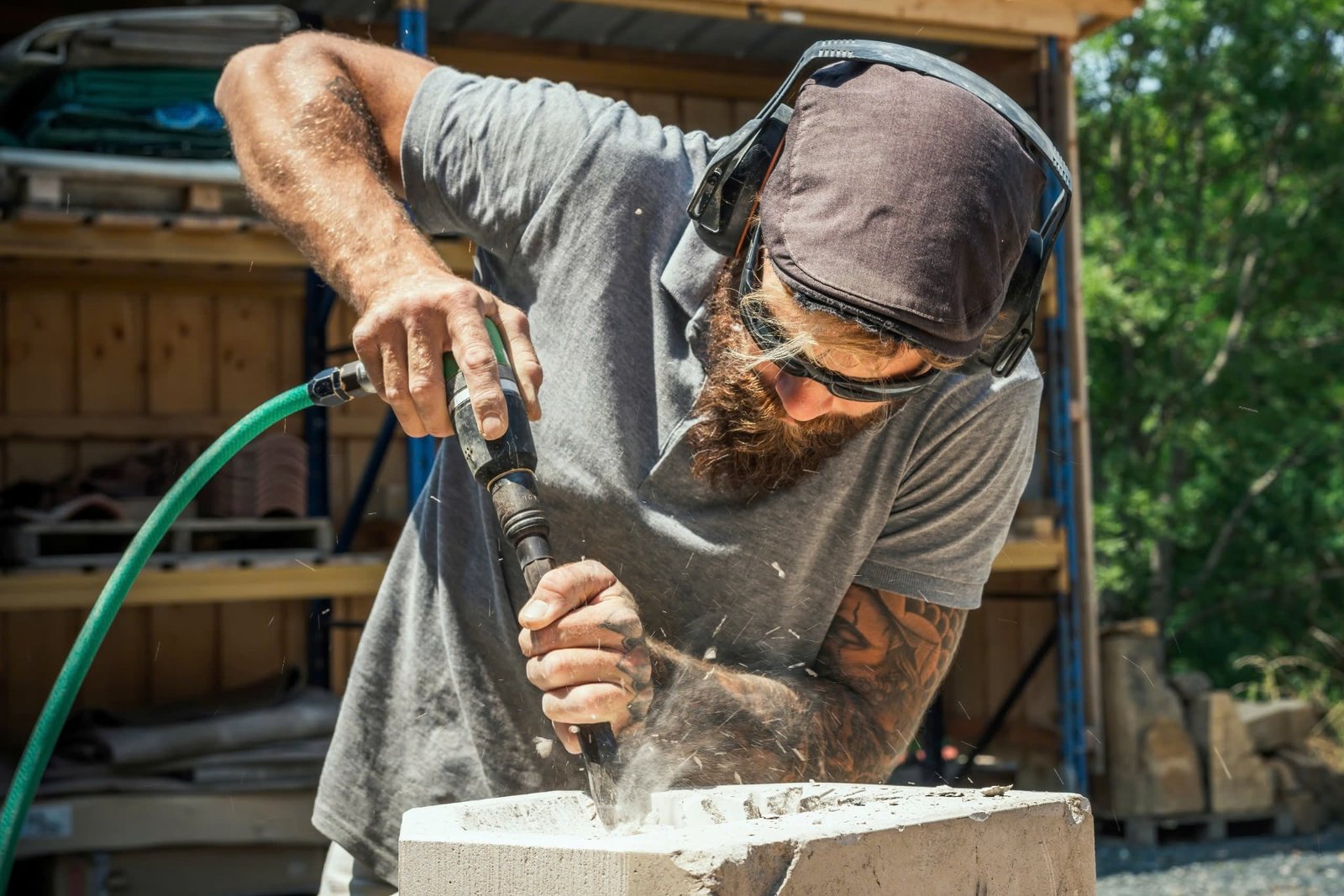
Granite countertops have long been a staple in home design, particularly in kitchens and bathrooms. Known for their natural beauty, strength, and lasting value
Granite countertop have long been a staple in home design, particularly in kitchens and bathrooms. Known for their natural beauty, strength, and lasting value, granite surfaces continue to be one of the most sought-after upgrades. But before you commit to this natural stone, it’s important to weigh the pros and cons.
This article offers an in-depth look at the advantages and disadvantages of choosing a granite countertop, helping you decide whether it’s the right surface for your home.

What Is a Granite Countertop?
A granite countertop is a polished surface made from granite; a natural igneous rock quarried from the earth. These slabs are cut and shaped to fit the exact dimensions of your kitchen countertop or bathroom vanity, offering a durable and visually appealing finish.
Each granite slab is unique in its mineral composition and veining, resulting in a one-of-a-kind piece that brings character and elegance to any space.
The Pros of a Granite Countertop
1. Exceptional Durability
Granite is one of the hardest natural stones available, making it highly resistant to scratches, heat, and general wear.
- Withstands high-heat items like pots and pans
- Resistant to cutting, chipping, and heavy impacts
- Ideal for busy households and cooking enthusiasts
2. Natural Beauty and Unique Patterns
Each granite slab features its own blend of mineral deposits, which means no two countertops are ever exactly alike. This uniqueness adds a premium, custom touch to your home.
- Available in a wide variety of granite countertop colors
- Complements modern, rustic, traditional, or transitional styles
- Enhances visual value and kitchen appeal
Want inspiration for your modern kitchen design?
👉 What Granite Countertop Colors Work Best for Modern Kitchens?
3. Long Lifespan
When properly maintained, granite countertops can last for decades often outlasting the cabinetry and flooring around them.
- Expected lifespan of 20–30+ years
- Withstands daily use in high-traffic areas
- Low likelihood of needing complete replacement
4. Adds Resale Value to Your Home
Because granite is associated with luxury and durability, homes with granite countertops often sell faster and at a higher price.
- Viewed as a premium upgrade by buyers
- Sets your home apart in a competitive market
5. Low Maintenance When Sealed
Granite is relatively easy to clean and care for, especially when the surface has been sealed correctly.
- Daily cleaning with mild soap and water is sufficient
- Minimal need for specialty products
- Resists staining and bacterial buildup when sealed
Need a care guide?
👉 How Do You Keep Your Granite Countertop Shiny and Clean?
The Cons of a Granite Countertop
While granite has many benefits, it’s important to understand its limitations as well.
1. Requires Periodic Sealing
Because granite is naturally porous, it needs sealing to protect against moisture and staining. This is especially important in kitchens where spills are common.
- Requires resealing every 12–24 months
- Unsealed granite may absorb oil or wine, leaving stains
- Improper sealing can lead to premature granite countertop repair
2. Higher Upfront Cost
Granite is more expensive than laminate, tile, or butcher block options. The price reflects both the quality of the material and the fabrication involved.
| Quality Tier | Approx. Price per Sq. Ft. (Installed) |
|---|---|
| Entry-Level Granite | $40–$60 |
| Mid-Range Granite | $60–$100 |
| High-End Granite | $100–$250+ |
While the cost is justified for many homeowners, it may not fit every renovation budget.
3. Heavy Material Requires Strong Cabinet Support
Granite is dense and heavy. Installing it requires sturdy cabinetry and possibly structural reinforcements, especially for large islands or long countertop spans.
- Inadequate support can lead to stress cracks
- Adds to total countertop installation cost and complexity
4. Risk of Cracking if Improperly Installed
If the countertop isn’t properly supported or installed, cracks can form—especially near sink cutouts or overhangs.
- DIY installation not recommended
- Hire professionals experienced with granite slab handling
5. Limited Color Consistency
Because it is a natural product, granite’s appearance can vary significantly between slabs. While this adds character, it may also present challenges in achieving a uniform look.
- Must choose slabs from the same lot
- May not suit minimalistic or ultra-uniform design goals
Comparing Granite to Other Countertop Materials
| Feature | Granite | Quartz | Laminate | Marble |
|---|---|---|---|---|
| Heat Resistance | Excellent | Moderate | Poor | Good |
| Scratch Resistance | Excellent | Excellent | Poor | Fair |
| Maintenance | Moderate | Low | Low | High |
| Natural Look | Yes | No (man-made) | No | Yes |
| Lifespan | 20–30 years | 15–25 years | 5–10 years | 10–15 years |
Granite offers the best combination of durability, appearance, and long-term performance when compared with most alternatives.
Tips for Granite Countertop Maintenance and Cleaning
To maximize the lifespan and beauty of your granite:
- Wipe spills immediately to prevent staining
- Clean daily with mild soap and a soft cloth
- Avoid acidic cleaners like vinegar or lemon
- Reseal when water no longer beads on the surface
- Use trivets and cutting boards for added protection
What About Granite Countertop Repairs?
In case of damage, granite countertop repair is usually straightforward:
- Chips can be filled with color-matched epoxy
- Cracks may be repaired with resin or replaced if structural
- Stains can often be removed with poultices or specialty cleaners
Proactive maintenance can prevent the need for most repairs.
Granite Countertop Design and Aesthetics
From modern to farmhouse, granite adapts beautifully to any style. Consider pairing:
- Black Galaxy granite with white cabinets for contrast
- Steel Gray granite with wood tones for warmth
- White Ice granite with sleek fixtures for a minimalist touch
The right color and pattern enhance both the form and function of your space.
Final Thoughts: Should You Choose Granite?
Granite countertops offer a stunning, durable, and long-term solution for kitchens and bathrooms. While the initial cost and maintenance requirements may be a consideration, the value they bring in style, strength, and resale potential is undeniable.
Key Takeaways
- Pros: Durable, heat-resistant, beautiful, increases home value, unique patterns
- Cons: Requires sealing, higher upfront cost, heavy, variable appearance
- Ideal for those seeking a natural stone with timeless appeal
- Best maintained with proper sealing, gentle cleaning, and professional installation
Whether you’re building a new kitchen or renovating an old one, granite remains a premium choice with enduring benefits.

